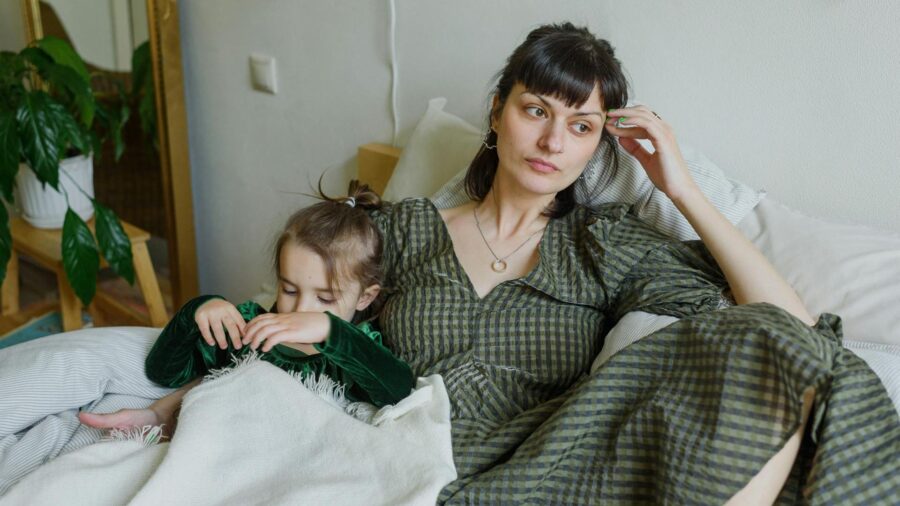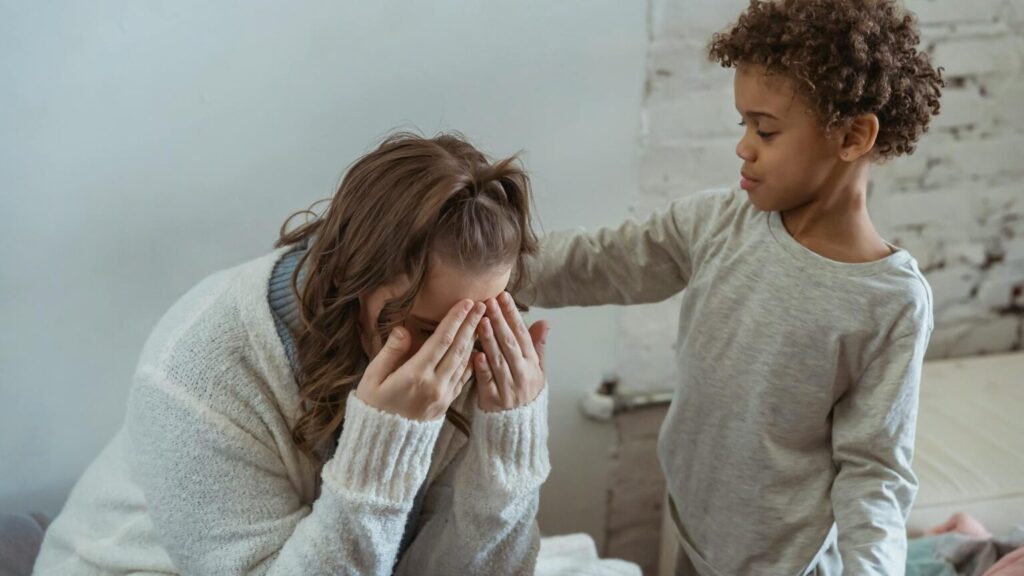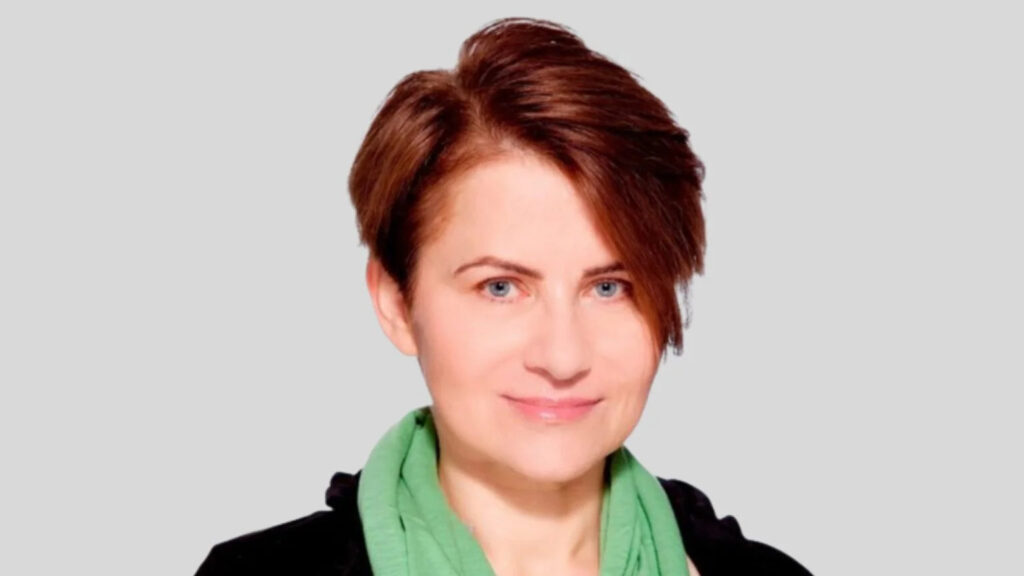Science
AI Caught Red-Handed: The New Smoking Gun in Courtroom Battles
11 February 2026

Admittedly, we have been talking about parental burnout since the 1980s, but it was the COVID lockdowns lasting weeks that caused a gigantic crisis in many families. During the pandemic, it became increasingly evident that burnout can affect not only parents of children with disabilities but also parents of healthy children – says Dr. Dorota Szczygieł, a psychologist from SWPS University in Sopot.
Katarzyna Sankowska-Nazarewicz: For many years, parental burnout has been a taboo in our society, because it is difficult to talk about it in a country where a family is put on a pedestal. But today it is changing.
Dorota Szczygieł: We are only learning to speak openly that we feel burned out as a parent, but such declarations are always connected with a sense of shame and guilt. This reaction is natural, as we have inherited the belief that being a parent is the most satisfying experience in life from generation to generation.
Isn’t it so?
Research shows that parenting gives us a sense of meaning. It also indicates that this is a very burdening task, and not everyone can cope with parental stress. In the era of curated relations on Instagram, many people find this hard to believe. However, I remember when, a few years ago, Agnieszka Chylińska talked about how difficult motherhood is for her. She received many words of support and understanding, but at the same time, she had to face a huge wave of hatred.
Of course, someone might say that we all encounter stressful situations in everyday life. It is inevitable and in a sense even positive, because stress motivates us to action. However, while we can always take leave at work, in the case of parental burnout, this stress is chronic, because, after all, we will not exempt ourselves from being a parent. People who lack the resources to cope with excessive burdens begin to experience symptoms of burnout.
We recommend: Open Educational Spaces. Rethinking the Classroom
What are the symptoms?
It begins with physical exhaustion. Sometimes, we lack the strength to get up in the morning, overwhelmed by the thought of another day filled with work, taking the child to activities, and doing homework together. Another symptom is emotional distancing from the child. While we can take care of the necessary minimum, that is, we make sure that the child is dressed and fed, we no longer want to engage in emotional matters. For example, we do not want to hear another story about what happened in kindergarten. Or we are irritated that the child cries often. This is followed by a sense of being overwhelmed by the role of a parent and disappointment in ourselves as we compare the parent we were with the parent we have become.
Mothers often say: “I always wanted to have children, why am I tired, annoyed, and unable to get involved?” They face enormous remorse. Parental burnout doesn’t mean the parent no longer wants the child or loves them. Paradoxically, the more involved a parent is, the greater the chance that this effort will lead to burnout. Unfortunately, both sides pay the price.
However, parental burnout is not just a psychological issue. It also reflects the significant social and cultural changes we are experiencing.

Was it easier for our parents?
In many respects, yes. Over the years, the child’s position in the family has also changed. A few generations ago, children were simply part of a large family and often contributed to work. The turning point was World War II, which brought great disappointment with culture and civilization. This also led to a shift in thinking of children as a fundamental value in life.
Decades ago, people grew up in a collectivist culture where the good of the group was prioritized over individual happiness. This model gave support and awareness of belonging to a community. Today we are moving toward individualism, which is naturally associated with the advent of capitalism and progressive social liberalization. In this model, social bonds are loose, and individuals have greater autonomy. They focus primarily on their immediate family, goals and achievements.
So, the concept of the village, which, according to the old saying, is needed to raise a child, is changing. I have the impression that today the place of a multi-generational family, which has always been close and could help, is occupied by befriended parents from kindergarten or a group on Facebook.
It is true. Today we have to build this village in a new way. The support we can get from these groups is one of the necessary resources to protect ourselves from the crisis. This support is multi-dimensional. Someone can tell us where to look for help when a child gets sick. Someone else will listen to us when we need to get something off our chest, or do the laundry and cook dinner for the whole week when we feel bad. We are also protected from burnout by institutional support, i.e. the availability of nurseries or kindergartens, as well as other institutions offering professional help.
We recommend: Screen Inspirations. Films That Brilliantly Portray the Human Psyche
During the COVID-19 pandemic, we painfully learned how important it is to support in raising children.
Many of us still haven’t shaken off the overburdening from COVID, when we had to combine remote work with solo childcare. Admittedly, we have been talking about parental burnout since the 1980s, but it was the COVID lockdowns lasting weeks that caused a gigantic crisis in many families. During the pandemic, it became strongly evident that burnout can affect not only parents of children with disabilities but also parents of healthy children – says Dr. Dorota Szczygieł, a psychologist from SWPS University in Sopot.
And when it seemed that the pandemic would end and we would have turned the corner, the outbreak of war in Ukraine made us again afraid for our security. Additionally, many families began to face economic challenges. This accumulation makes us exposed to extreme levels of stress for years and it becomes increasingly difficult for us to maintain emotional balance.

You are part of an international research consortium studying parental burnout. The first of these, the International Investigation of Parental Burnout (IIPB), was carried out in 2018 in 42 countries, on a sample of over 17,000 people. What were the main conclusions?
This study has shown that on average, 5% of parents worldwide suffer from parental burnout, i.e. they experience the full spectrum of symptoms already described. In some countries – such as the United States, Poland, or Belgium – this syndrome is more visible. The percentage of parental burnout reaches 8-9% of the respondents, both among mothers and fathers. The United States and Belgium are countries where individualistic culture is dominant. In Poland, this model strongly clashes with a culture that prioritizes community placing modern parents at the meeting point of these values. The second factor that made the burnout rate so high in Poland was, in my opinion, insufficient institutional support at the time, for example, the availability of nurseries or kindergartens, which, among other things, prevented women from returning to work after childbirth.
The study also revealed another important insight. We commonly think that raising a child alone, having a large family, or having a child with a disability means that sooner or later we will burn out as a parent. However, it turned out that specific personality traits, such as high neuroticism, low resistance to stress, or parental perfectionism, predispose individuals to burnout much more. Many parents perceive even a small mistake in upbringing as a poignant failure.
They set the bar very high and at the same time, they are very critical of the mistakes they make. Perfectionism is a product of individualistic culture. It makes us want to be perfect parents and employees. We strive to provide the child with the best learning opportunities, and at the same time, we want to develop ourselves constantly. But it’s impossible. A day has only 24 hours, and our physical and emotional resources are limited.
The Empowering Children Foundation conducted a study showing that burnout parents are at risk of using physical punishment against children. Many resorting to violence parents explained their behavior by exhaustion and by the fact that they had no strength to behave differently.
As the sense of exhaustion increases and the emotional distance between parent and child grows, the likelihood of neglect and violence increases. The research shows a strong linear relationship between the level of parental burnout and the frequency of neglect and aggressive behavior toward children. And I do not mean the events described in the front pages of newspapers, but the everyday situations when a parent throws toys, tells a child that they are sick of them, that they do not love them anymore, or threatens to leave the house and never come back. It is also common for parents to avoid responsibility – when a parent sees that a child is sad, they will not talk to them when they need support in learning, will not help them, or will not buy drugs for them in time.
We recommend: Trivializing of Euthanasia. Truly A Remedy for a Burning Planet?
How to help such parents?
The only solution is psychotherapeutic support. A person doesn’t need to seek out a psychologist specializing in parental burnout. Studies conducted in Belgium indicate that therapeutic influence that does not focus solely on parental problems is also effective. Group therapy is particularly valuable, as these meetings provide an opportunity to step out of our shells and see ourselves in a different light. For many people, realizing that others struggle with similar problems and that their homes are far from ideal allows them to distance themselves from their perfectionism.
But the most important thing is prevention. We have to remember that being a mother or a father is only one of many roles in life. Besides that, someone is also a woman, a man, a daughter, a son, a worker, a friend. Life is made up of many squares, and different fields of activity that are equally important and provide us with a sense of balance. If we invest only in one aspect, we will never be complete. Sometimes one has to force oneself to do something for oneself. And not to be afraid to ask for support.
Dr. Dorota Szczygieł – Psychologist from SWPS University in Sopot. Deals with the psychology of emotions. Author of numerous scientific publications on the regulation of emotions and the relationship between emotions and well-being, as well as emotional intelligence as a factor modifying this relationship. A member of the International Investigation of Parental Burnout Consortium, which researches the conditioning and consequences of parental burnout. Realizes, in collaboration with the Intervention and Research on Socio-Emotional Competence at the University of Louvain-la-Neuve (Belgium), a research project on the importance of emotional competence for social functioning and human well-being.
Translation: Marcin Brański
Read the text in Polish: Wypaleni rodzice. Jak odzyskać radość bycia z dzieckiem?